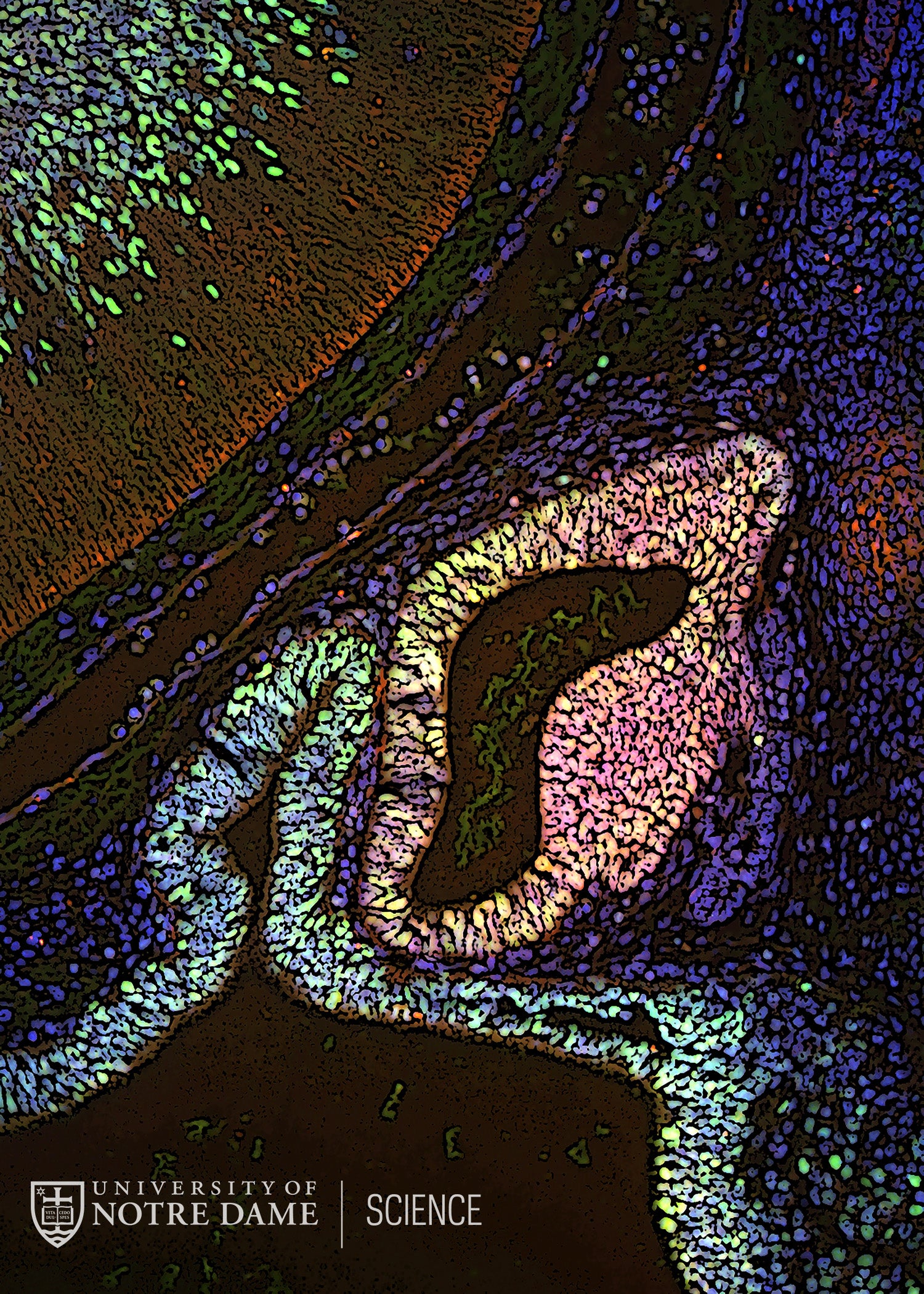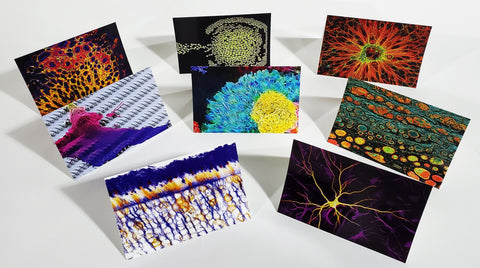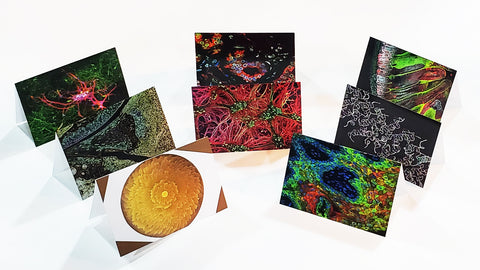

Michelle Brinkmeier, Research Lab Specialist (Camper Laboratory), Department of Human Genetics, University of Michigan Medical School
The pituitary gland, often called the “master gland”, makes hormones that are essential for growth, metabolism, fertility and the stress response. Two different tissues interact to create two lobes of the pituitary gland during development: one lobe is derived from neural tissue (here stained green), while the other lobe is derived from the lining of the oral cavity (stained red). The green population contains stem cells that are not yet committed to a single cell fate. The red cells are actively committing to three specific cell fates: somatotropes (responsible for regulating growth by secreting growth hormone), thyrotropes (which regulate metabolism by making thyroid stimulating hormone) and lactotropes (which make prolactin to regulate lactation). Mutations in a gene (PROP1) that drives differentiation of these three cell fates is the most common cause of pituitary insufficiency in humans.
23-007



